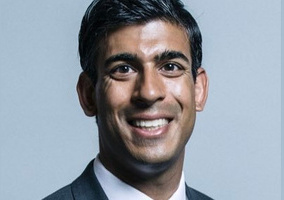The government and the National Lottery Community Fund face renewed criticism over their handling of coronavirus grants aimed at small charities.
Officials at both the Department for Digital, Culture, Media and Sport (DCMS) and NLCF have been unable to confirm whether any grants have yet been made from the Coronavirus Community Support Fund, which was set up a month ago to distribute millions of pounds to small charities affected by the coronavirus pandemic.
Charity leaders concerned about the lack of transparency have called the situation “deeply concerning” and “unacceptable.”
Promise of urgent funding
Emergency funding for small charities was first announced by the chancellor on 8 April, when he committed to “do everything we can to help the sector during this difficult time”.
The government’s £750m support package unveiled in April included £370m for small charities, much of which is to be distributed by the NLCF to small charities in England.
Six weeks later, after concerns about delays in setting up the fund, NLCF announced that it was open for applications, with £200m set for distribution in the first round of funding.
The NLCF decided that applications would be considered on a first-come, first-served basis, saying “we know you need funding quickly”.
The NLCF has subsequently confirmed that it has received a “record breaking” number of applications to the fund, but has not released any data on the criteria for making funding decisions, how many applications it has received, how much money has been committed to charities, and how much money remains to be allocated.
This week both NLCF and DCMS refused to comment on whether the fund had made any payments to charities so far.
ACEVO: ‘This money is urgently needed by charities’
Vicky Browning, chief executive of ACEVO, said: “The key to emergency funding is in the name: this money is needed urgently by charities struggling to maintain or increase the amount of support they provide.
“We appreciate that moving large amounts of money in short amounts of time is complex, but it has not been made clear to us where the blockages are occurring, and this lack of transparency is deeply concerning.
“The NLCF is an important partner to the charity sector, and ACEVO would like to work with it more productively on behalf of our members to get the funding distributed swiftly and openly.
“Civil society is never more needed, and we would like to see a response from NLCF and DCMS that truly reflects this urgency.”
DSC: The lottery has been ‘hamstrung’ by government
Jay Kennedy, the director of policy and research at the Directory of Social Change, said: “It has now been a full 12 weeks since this funding was announced, and a full month since the Coronavirus Community Support Fund opened for applications.
“Still we have no data about how many applications there have been, how many have been successful, whether the initial £200m has already run out, or whether any funding has been awarded at all. Why? It's unacceptable. The public and indeed applicant charities need this information.”
Kennedy also suggested that the delays may be down to DCMS interference.
He said: “This fund is supposed to support small charities, which the lottery has vast experience of doing. Why else use it? But it's increasingly obvious that the government has hamstrung their expertise and processes with red tape and ministerial diktats.
“Small charities need transparency and action, not dithering and delay.”
Still waiting
Richard Collins, the creative director at Sortified, a Lincolnshire-based social enterprise, confirmed that none of the charities in his local network had heard anything about their applications to the Coronavirus Community Support Fund.
Collins told Civil Society News: “We know of many charities and social enterprises who were waiting for the government response, and whilst they were concerned that the £370m for small organisations would not be sufficient, they were happy to see some short-term funding coming their way through the NLCF. 10 weeks later we haven’t heard of anyone receiving any of this funding.
“I’m not sure why this is the case. Either the amount of applications has been utterly overwhelming or there is an issue or blocker that we don’t know about.
“What we do know is that other funders, including [other programmes run by] the lottery, have not had any issues in getting money out.”
NLCF: 'Demand for funding remains high'
When asked for comment, the NLCF referred back to its statement last week, when a spokesperson said: “Demand for funding remains high, with record numbers of applications coming in. We continue to work hard to assess applications at speed so that we can get funding out to communities as quickly as possible.”
DCMS referred queries to NLCF.
Related articles












